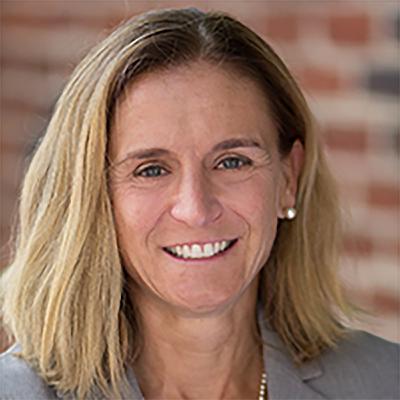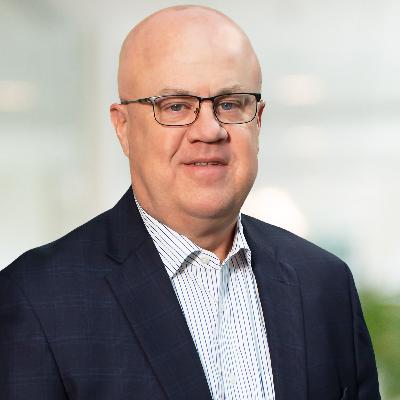Melanie Phelps, DrPH, JD - Better Care and Outcomes through ACOs
Description
Today we hear from Melanie Phelps, Senior Advocacy Advisor of Health System Transformation for the American Heart Association, who shares with CHESS President, Dr. Yates Lennon, the motivation and detailed findings of a new study conducted by the AHA which found that ACOs provide better care and outcomes for patients and a better practice experience for members of the health care team than traditional fee for service. www.heart.org/bettercare
Yates Lennon
Melanie Phelps, welcome to the move to Value podcast.
Glad to have you with us today.
Melanie Phelps
Glad to be here.
Thanks for having me.
Yates Lennon
Sure, of course.
So Melanie, recently the American Heart Association, released a study called Understanding Patient Family Caregiver and Health Care team member ACO experiences. Can you talk to us a little bit about what motivated the American Heart Association to conduct this research?
Melanie Phelps
Happy to. So the idea for the study arose out of a desire to be able to talk about ACOs in a more relatable manner to people who are not steeped in the technical jargon around ACO and value based care generally.
We thought the best way to do this was to hear directly from patients, their family, caregivers and healthcare team members who receive or who provide care through ACOs.
So from those who are on the ground receiving and providing care, and our hope is to use this information to better explain the benefits of ACOs in a way that's more understandable to more people.
Yates Lennon
Yes, certainly that, that sounds good.
I know. ACO is an acronym that I think everyone of our listeners would be familiar with but when you get outside of the healthcare team member and even within in some settings, it's something people don't understand. Well, the study compares patient experiences in ACOs to the more traditional fee for service models.
What were some of the key differences that stood out in terms of patient's experience first?
Melanie Phelps
Well, the results showed that.
The care that's provided through these ACO models is just better in terms of quality and access, because there's a usual source of care through a primary care provider, whether that's a MD or an advanced practice provider.
And there's usually a dedicated care manager as well as a team of people to ensure that all their needs, physical, mental, emotional and health related social needs are addressed.
So essentially their experience is that they receive better, more timely and coordinated care with added supports that they wouldn't get in a pure fee for service arrangement.
And I heard more than a few times that it's better than what we had before.
And I also heard that my friends don't get the same level of care, and even some of the healthcare team members who lamented the fact that they can't provide this level of care to all their patients, especially those who are not assigned to an ACO, so.
Yates Lennon
Yeah. And I can echo that experience.
I think some of our care team providers share with us stories of patients they interact with and we certainly hear that same story and even I have family in a different part of the state than the triad. And I can say from personal experience, I wish they were in these models.
The American Heart Association conducted interviews like you said, just talked about among patients, caregivers and these healthcare team members.
What were the what were their common themes?
You just mentioned some common themes among patients, but if you expand that, what were some of the key findings or common themes across all three of those groups, patient, caregiver, and healthcare team member?
Melanie Phelps
Yeah. So in a nutshell and at the highest level, our study found that patient and caregiver study participants, OK, they believe that the care they receive through an ACO model is better for patients and then the care team member study participants believe that providing care through an ACO model not only is better for patients, but it's also better for the healthcare team members. And before I break this down, I just wanted to make something clear. I think this will be helpful.
This doesn't mean that all the ACOs that I interviewed are performing at the highest levels, and in fact there was some variation and level of services and supports that the different study participants reported.
I'd say some of the ACOs were really sophisticated.
And then there were others that had some room for improvement. But even those that I would say have room for improvement
Weren't quite as sophisticated.
They had much better supports and services for their patients than someone would receive in a traditional fee for service arrangement.
So anyway, now let's go ahead and break this down and I'll start with the patient and caregiver interviews.
While the care and services provided across ACOS varied, there were still several common themes that emerged, including that patients in ACOs they received better care and support through a number of factors. OK. And these factors include a dedicated primary care relationship.
So all study participants had a relationship with the primary care provider, and those relationships were overwhelmingly positive.
We only had one patient who had some issues with their PCP and recognize the need to change, but otherwise they were very positive.
Then there's the team of healthcare professionals who helped provide enhanced care and support and that always included a care manager who helps the patients and their caregivers navigate issues and connects them to needed services and supports.
The next theme was improved access to care and support, and this included assistance with emergent or urgent issues.
Timely responses and connection to needed resources.
The next theme enhanced patient engagement.
Which includes more time spent with patients as well as co-developed care plans.
Then another theme, there were quite a few in this group, trusting relationships that made patients they felt heard they felt understood and they felt valued as a person. Almost all patients reported that they primary primarily relied on their providers for referrals and all the patients and the caregivers interviewed said they primarily relied on their providers for information about their medical conditions and treatment, and then the other two themes. The next one was improved communication, access and coordination with patients and their family caregivers as well as with all the healthcare providers.
And then finally, that more holistic approach to care that addresses physical, mental, emotional health, as well as those non-medical barriers to health.
For things such as access to healthy food, transportation, housing related issues, financial assistance and other services that contribute to improved health and enhance quality of life.
So that's what the study found as far as the patients and the caregivers. Now with respect to what the healthcare team members had to say, let's focus first on why they thought it was better for patients to receive care through an ACO.
So all the healthcare team members that interviewed it was unanimous.
They agreed that care provided to patients, especially those who have multiple health related conditions, was better because of the extra time, extra attention and the extra support that they were able to provide through the ACO, which led to improved outcomes.
So the supports that they mentioned, the themes that emerged was.
You'll recognize some of these.
Having that regular source of care through a primary care physician or advanced practice provider such as a PA or a nurse practitioner, having a multidisciplinary team based approach to care which really brings in different areas of focus and allows that extra attention, the extra care and support to be deployed to those patients, especially those with the greater healthcare needs.
The whole person approach to care. That means the healthcare team can look at all the factors that impact a patient's health and well-being.
And they're able to then connect them to needed healthcare related resources and assistance. And then finally that enhances this one's pretty packed enhanced patient engagement education.
This includes things that there's greater emphasis on effective communication.
Building trust, understanding the patient as a person and the tools that are used or things like motivational interviewing, shared decision making, regular assessments, care plan o-development. It also included greater attention to populations and communities that have historically had access challenges and being able to connect them to resources and assistance with, with need when needed.
The other piece which this one I wasn't necessarily expecting, but it came through loud and clear, is that the healthcare team members agreed that providing care through an ACO model was better for members of the healthcare team for health care professionals, and why is that OK?
Well, they liked having that team approach to care because it allows different professionals to work together to provide optimal care to patients.
It expands access to care by providing additional resources and support to care for those patients that need it the most, and with doing so without overburdening the provider, the, the doctor or the Nurse practitioner or the PA. And then finally it they really felt like it allowed them to be better at that job.
S










